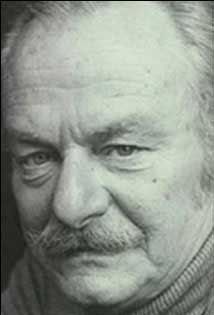Melih Cevdet
| Melih Cevdet Anday | |
|---|---|

Melih Cevdet Anday
|
|
| Born |
13 March 1915 Istanbul, Turkey |
| Died | 29 November 2002 (aged 87) Istanbul, Turkey |
Melih Cevdet Anday (13 March 1915 – 28 November 2002), was a Turkish writer whose unique poetry stands outside the traditional literary movements. He also wrote in many other genres which, over six and a half decades, included eleven collections of poems, eight plays, eight novels, fifteen collections of essays, several of which won major literary awards. He also translated several books from diverse languages into Turkish.
Melih Cevdet Anday was born in Istanbul in 1915 and lived there until his parents moved to Ankara in 1931. He graduated from Gazi High School and for a while began studying sociology in Belgium on a State Railways scholarship but had to return home in 1940 after the German invasion. Between 1942-51 he worked as a publication consultant for the Ministry of Education in Ankara and then as a city librarian. During this time he began his career as a journalist for several newspapers. After 1954, he worked as a teacher for the Istanbul Municipal Conservatory. Between 1964 and 1969, Anday served on Turkish Radio Television’s Board of Directors. After he retired from his position in the Conservatory in 1977, Anday was assigned to UNESCO Headquarters in Paris as Cultural Attaché until recalled after a change of Government.
As a poet, Anday was one of the leaders of the Garip movement, which also included Orhan Veli and Oktay Rifat. According to the preface of their joint collection, published in 1941, poetry should abandon the formalism and rhetorical classical style of previous centuries, making itself simple, colloquial, and matter of fact—an artless art designed to serve the common people.
However, present there even then was an uneasy acknowledgement of French Surrealism, and Anday was eventually to change his engaged style to a cerebral neo-surrealism as he cautiously navigated beyond the difficult political waters of his country. This culminated in what was regarded at the time as his masterwork, the four-sectioned long poem "Ulysses Bound" (Kollari Bagli Odysseus) of 1963. In this he deploys an original rhetoric of his own:
Other sectioned poems of some length were to follow, including "On the Nomad Sea" (Göçebe Denizin Üstünde, 1970) and "A poem in the manner of Karacaoglan" (Karacaoğlan’ın Bir Şiiri Üzerine Çeşitlemeler’de). But there were also many short poems of disarming simplicity such as "Sun" (I was just about to speak/ When suddenly the sun came out) and "Seagull" (Seagull, capital letter/ Scribbled by a child) whose thoughtful qualities journey beyond his earlier manner.
...
Wikipedia
